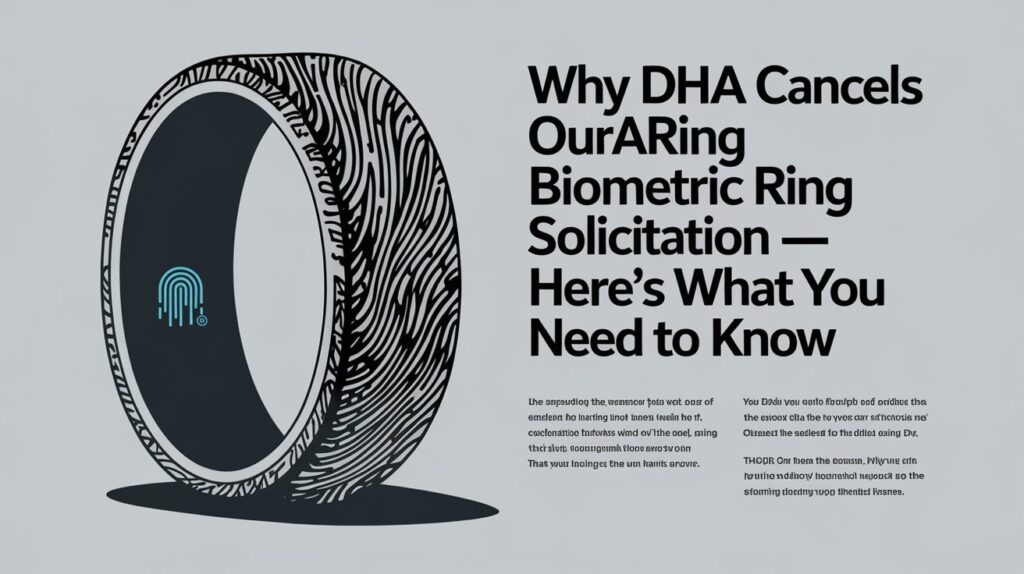The DHA cancels OuraRing biometric ring solicitation — and it’s raising questions across the healthcare and tech community.
What Was the Solicitation About?
The Defense Health Agency (DHA) had planned to purchase Oura Rings, a popular biometric wearable, to monitor health, sleep, and performance metrics for military personnel.
But now, the DHA cancels OuraRing biometric ring solicitation, and the deal is off.
Why was DHA interested in the Oura Ring?
The Oura Ring tracks sleep cycles, readiness, temperature changes, and heart rate — ideal for performance monitoring in high-stress environments like the military.
Learn more about the Oura Ring on Wikipedia.
Why Did DHA Cancel the Solicitation?
According to official sources, the DHA withdrew the solicitation without awarding a contract. No detailed reason was given publicly, but possible causes could include:
- Budget constraints
- Data security concerns
- Vendor competition or protests
- Policy shifts or internal reviews
Could data privacy be a major factor?
Yes. Biometric data collection, especially for military personnel, raises serious privacy and national security questions.
What Happens Next?
Now that the DHA cancels OuraRing biometric ring solicitation, the agency might:
- Reissue the solicitation with new terms
- Seek alternate biometric solutions
- Shift focus to in-house tools or larger defense contractors
Will this affect the military’s health tech strategy?
It might. It shows growing caution in integrating consumer tech into sensitive defense environments.
Why This Matters
This decision reflects broader debates around:
- Using commercial wearables in defense
- Balancing innovation with security
- Reliability of consumer-grade health tech in military settings
Is this a setback for wearable tech in government?
Not necessarily — it could lead to more refined, secure solutions in the long term.

Final Thoughts
The fact that the DHA cancels OuraRing biometric ring solicitation highlights an evolving tension between innovation and control in government tech use.
Military agencies continue to explore cutting-edge tools — but security, privacy, and strategic value remain top priorities.
See more on the Defense Health Agency from Citizendium.



















































